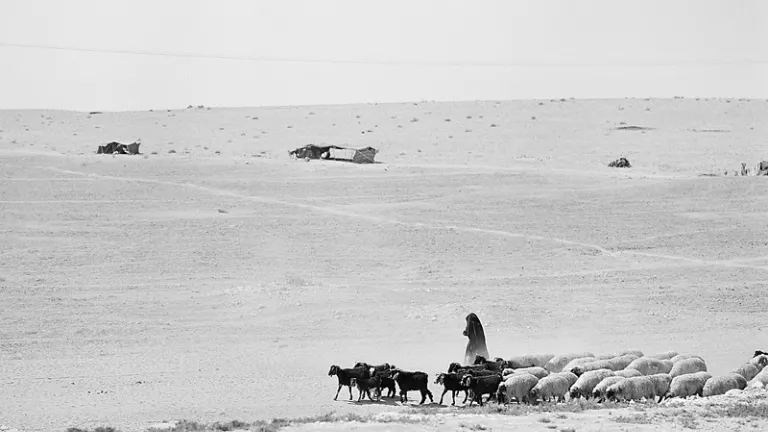When was Jesus Christ born? Was Jesus born on December 25 - Christmas Day?

History shows that December 25 was popularized as the date for Christmas, not because Christ was born on that day, but because it was already popular in pagan religious celebrations as the birthday of the sun. But could December 25 be the date of Christ's birth?
A careful analysis of Scripture, however, clearly indicates that December 25 couldn't be the date for Christ's birth. Here are two primary reasons:
First, we know that shepherds were in the fields watching their flocks at the time of Jesus' birth (Luke 2:7-8). Shepherds were not in the fields during December. According to Celebrations: The Complete Book of American Holidays, Luke's account "suggests that Jesus may have been born in summer or early fall. Since December is cold and rainy in Judea, it is likely the shepherds would have sought shelter for their flocks at night" (p. 309).
Similarly, The Interpreter's One-Volume Commentary says this passage argues "against the birth [of Christ] occurring on Dec. 25 since the weather would not have permitted" shepherds watching over their flocks in the fields at night.
Second, Jesus' parents came to Bethlehem to register in a Roman census (Luke 2:1-4). Such censuses were not taken in winter, when temperatures often dropped below freezing and roads were in poor condition. Taking a census under such conditions would have been self-defeating.
Given the difficulties and the desire to bring pagans into Christianity, "the important fact then which I have asked you to get clearly into your head is that the fixing of the date as December 25th was a compromise with paganism" (William Walsh, The Story of Santa Klaus, 1970, p. 62).
If Jesus Christ wasn't born on December 25, does the Bible indicate when He was born? The biblical accounts point to the fall of the year as the most likely time of Jesus' birth, based on the conception and birth of John the Baptist.
Since Elizabeth (John's mother) was in her sixth month of pregnancy when Jesus was conceived (Luke 1:24-36), we can determine the approximate time of year Jesus was born if we know when John was born. John's father, Zacharias, was a priest serving in the Jerusalem temple during the course of Abijah (Luke 1:5). Historical calculations indicate this course of service corresponded to June 13-19 in that year (The Companion Bible, 1974, Appendix 179, p. 200).
It was during this time of temple service that Zacharias learned that he and his wife, Elizabeth, would have a child (Luke 1:8-13). After he completed his service and traveled home, Elizabeth conceived (Luke 1:23-24). Assuming John's conception took place near the end of June, adding nine months brings us to the end of March as the most likely time for John's birth. Adding another six months (the difference in ages between John and Jesus (Luke 1:35-36)) brings us to the end of September as the likely time of Jesus' birth.
Although it is difficult to determine the first time anyone celebrated December 25 as Christmas Day, historians are in general agreement that it was sometime during the fourth century. This is an amazingly late date. Christmas was not observed in Rome, the capital of the Roman Empire, until about 300 years after Christ's death. Its origins cannot be traced back to either the teachings or practices of the earliest Christians.
To learn more about the origins of Christmas, read the following online Bible study resources:
Why Some Christians Don't Celebrate Christmas
The Most Wonderful Time of the Year?
Was There Really "No Room in the Inn"?
Was Christ Born on Christmas Day?
The Top 10 Reasons Why I Don't Celebrate Christmas
Bible FAQ: Is there any connection between the tree mentioned in Jeremiah 10 and the Christmas tree?
Video: The Day After Christmas
Video: The Real Meaning of Christ's Birth
Bible Study Aid Booklet: Holidays or Holy Days: Does It Matter Which Days We Observe?






